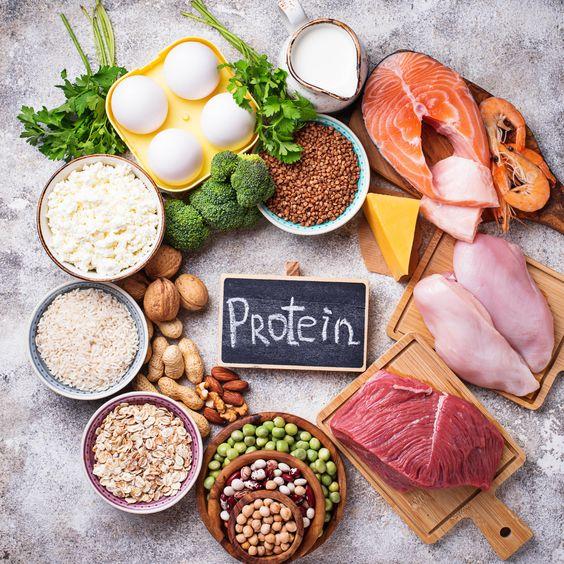Protein for Weight Loss: How Much Protein Should You Eat?

When it comes to weight loss, protein plays a crucial role in helping you shed those extra pounds while maintaining muscle mass. Whether you’re using whey protein for weight loss or focusing on a protein-rich diet, understanding how much protein you need and how to incorporate it into your meals is essential. In this article, we’ll explore why protein is beneficial for weight loss, how much protein you need, and practical tips for increasing your protein intake.
Why Protein Is Good for Weight Loss
Protein is often considered one of the most important nutrients for weight loss due to several reasons:
Boosts Metabolism: Protein requires more energy to digest, increasing your metabolism through a process called the thermic effect of food (TEF). This means you burn more calories simply by eating protein-rich foods or using protein powder for weight loss.
Keeps You Fuller Longer: Protein helps reduce hunger by increasing levels of satiety hormones, keeping you full for longer periods. This can help reduce overall calorie intake, making it easier to stick to your weight loss goals.
Preserves Muscle Mass: During weight loss, it's common to lose muscle along with fat. Protein helps preserve lean muscle mass, which is important for maintaining a healthy metabolism. Weight loss protein powders, such as whey protein for weight loss, are ideal for supporting muscle retention.
How Much Protein Do I Need to Lose Weight?
The amount of protein you need for weight loss depends on several factors, such as your age, activity level, and overall goals. A general guideline is to aim for 1.6 to 2.2 grams of protein per kilogram of body weight when trying to lose weight. For example, if you weigh 70 kg, you would need approximately 112-154 grams of protein per day.
For individuals involved in intense physical activity, or those using weight management protein powders, slightly higher amounts of protein may be beneficial.
How to Increase Your Protein Intake for Weight Loss
Incorporating more protein into your diet doesn’t have to be complicated. Here are some easy ways to increase your protein intake for weight loss:
Use Protein Powder: Adding a scoop of whey protein for weight loss into your morning smoothie or shake is an easy way to meet your daily protein goals. Look for the best protein powder for weight loss that suits your dietary preferences.
Eat Protein-Rich Meals: Include lean meats, fish, eggs, and legumes in your meals. These sources are rich in high-quality protein and can help you stay on track with your weight loss goals.
Snacks with Protein: Choose snacks that are rich in protein, such as Greek yogurt, cottage cheese, or protein bars. These can keep you feeling full between meals.
Opt for Protein Supplements: Weight loss protein powders are convenient for those who struggle to meet their daily protein needs through food alone. Whether it’s whey or plant-based protein, these supplements are effective in boosting protein intake.
Starting Your Protein Diet for Weight Loss
If you’re ready to embark on a protein diet for weight loss, start by assessing your current protein intake and gradually increase it. Incorporate weight management protein powder if you need additional support. Whether you're using protein powder for weight loss or focusing on whole foods, make sure to balance your diet with plenty of vegetables, healthy fats, and moderate carbs.
Here’s a simple plan to get started:
Breakfast: A smoothie with whey protein for weight loss, spinach, and almond milk.
Lunch: Grilled chicken with a side of vegetables and quinoa.
Snack: A Greek yogurt or protein bar.
Dinner: Salmon or tofu with roasted vegetables and a small portion of brown rice.
By consistently meeting your protein needs, you’ll support your weight loss journey while preserving muscle mass and boosting metabolism.
Conclusion
Protein is an essential nutrient when it comes to weight loss, helping to increase metabolism, reduce hunger, and maintain muscle mass. Using tools like the best protein powder for weight loss or incorporating more protein-rich foods into your diet can help you reach your goals. Remember to adjust your protein intake based on your body weight and activity level, and start your protein diet for weight loss today for lasting results.

Comments